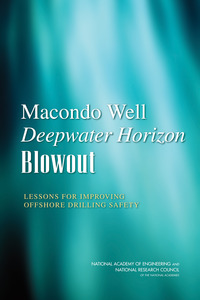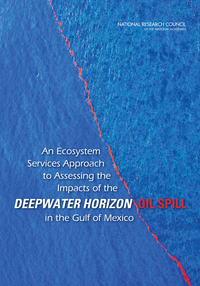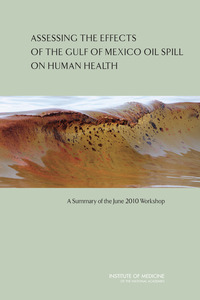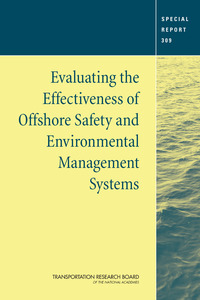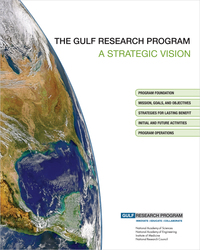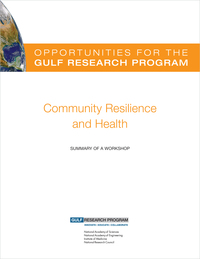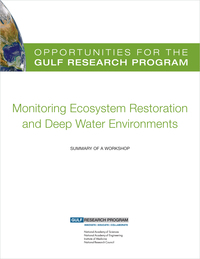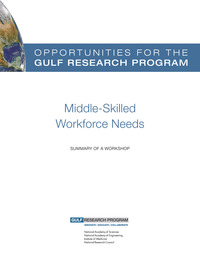Forests cover nearly one-third of the United States, accounting for more than 1 million square miles. Because of their vital role in carbon storage, nutrient cycling, and air and water purification, as well as in supplying habitat for wildlife, maintaining forest health is essential.
Today, nonnative invasive tree pests, more virulent native pests, increases in size and frequency of wildfires, and climate changes all threaten the health of our forests. The loss of a tree species can have cascading adverse effects on ecosystems, both on the range of services it provides and the values it represents to human populations. Our publications explore challenges and opportunities to reduce the impacts of our changing world on forest health. All are free to download.
Forest Health and Biotechnology: Possibilities and Considerations
The American chestnut, whitebark pine, and several species of ash in the eastern United States are just a few of the North American tree species that have been functionally lost or are in jeopardy of being lost due to outbreaks of pathogens and …
Although ecosystems, humans, and fire have coexisted for millennia, changes in geology, ecology, hydrology, and climate as well as sociocultural, regulatory, and economic factors have converged to make wildland fire management exceptionally …
Urban Forestry: Toward an Ecosystem Services Research Agenda: A Workshop Summary
Much of the ecological research in the past decades has focused on rural or wilderness areas. Today, however, ecological research has been taking place in our cities, where our everyday decisions can have profound effects on our environment. …
The forested land in the United States is an asset that is owned and managed not only by federal, state, and local governments, but also by families and other private groups, including timber investment management organizations and real estate …
Hydrologic Effects of a Changing Forest Landscape
Of all the outputs of forests, water may be the most important. Streamflow from forests provides two-thirds of the nation’s clean water supply. Removing forest cover accelerates the rate that precipitation becomes …
Genetically Engineered Organisms, Wildlife, and Habitat: A Workshop Summary
Since the first commercial introduction of transgenic corn plants in 1995, biotechnology has provided enormous benefits to agricultural crop production. Research is underway to develop a much broader range of genetically engineered organisms …
Valuing Ecosystem Services: Toward Better Environmental Decision-Making
Nutrient recycling, habitat for plants and animals, flood control, and water supply are among the many beneficial services provided by aquatic ecosystems. In making decisions about human activities, such as draining a wetland for a housing …








 Five years ago today, firefighters were struggling in vain to extinguish a fire on the Deepwater Horizon oil rig in the Gulf of Mexico. The blowout of the Macondo well caused the explosion on the Deepwater Horizon oil rig, killing 11 crewmen and igniting a fireball visible from 40 miles away. On 22 April 2010, Deepwater Horizon sank, leaving the well gushing at the seabed and causing the largest oil spill in U.S. waters. It would be nearly three months before the well could be completely killed, during which time, nearly 5 million barrels of oil spilled into the gulf. Reports from the National Research Council, National Academy of Engineering, Institute of Medicine, and Transportation Research Board provided analysis of the spill and guidance for policy making, health care monitoring, and environmental protection. As part of the legal settlements with the companies held responsible, the federal government has asked the National Academy of Sciences to form and administer a 30-year program to enhance oil system safety, human health, and environmental resources in the Gulf of Mexico and other U.S. continental shelf areas where offshore oil and gas exploration and production occur or are under consideration. Reports from the Gulf Research Program focus on research and development, education and training, and environmental monitoring. All are free to download.
Five years ago today, firefighters were struggling in vain to extinguish a fire on the Deepwater Horizon oil rig in the Gulf of Mexico. The blowout of the Macondo well caused the explosion on the Deepwater Horizon oil rig, killing 11 crewmen and igniting a fireball visible from 40 miles away. On 22 April 2010, Deepwater Horizon sank, leaving the well gushing at the seabed and causing the largest oil spill in U.S. waters. It would be nearly three months before the well could be completely killed, during which time, nearly 5 million barrels of oil spilled into the gulf. Reports from the National Research Council, National Academy of Engineering, Institute of Medicine, and Transportation Research Board provided analysis of the spill and guidance for policy making, health care monitoring, and environmental protection. As part of the legal settlements with the companies held responsible, the federal government has asked the National Academy of Sciences to form and administer a 30-year program to enhance oil system safety, human health, and environmental resources in the Gulf of Mexico and other U.S. continental shelf areas where offshore oil and gas exploration and production occur or are under consideration. Reports from the Gulf Research Program focus on research and development, education and training, and environmental monitoring. All are free to download.